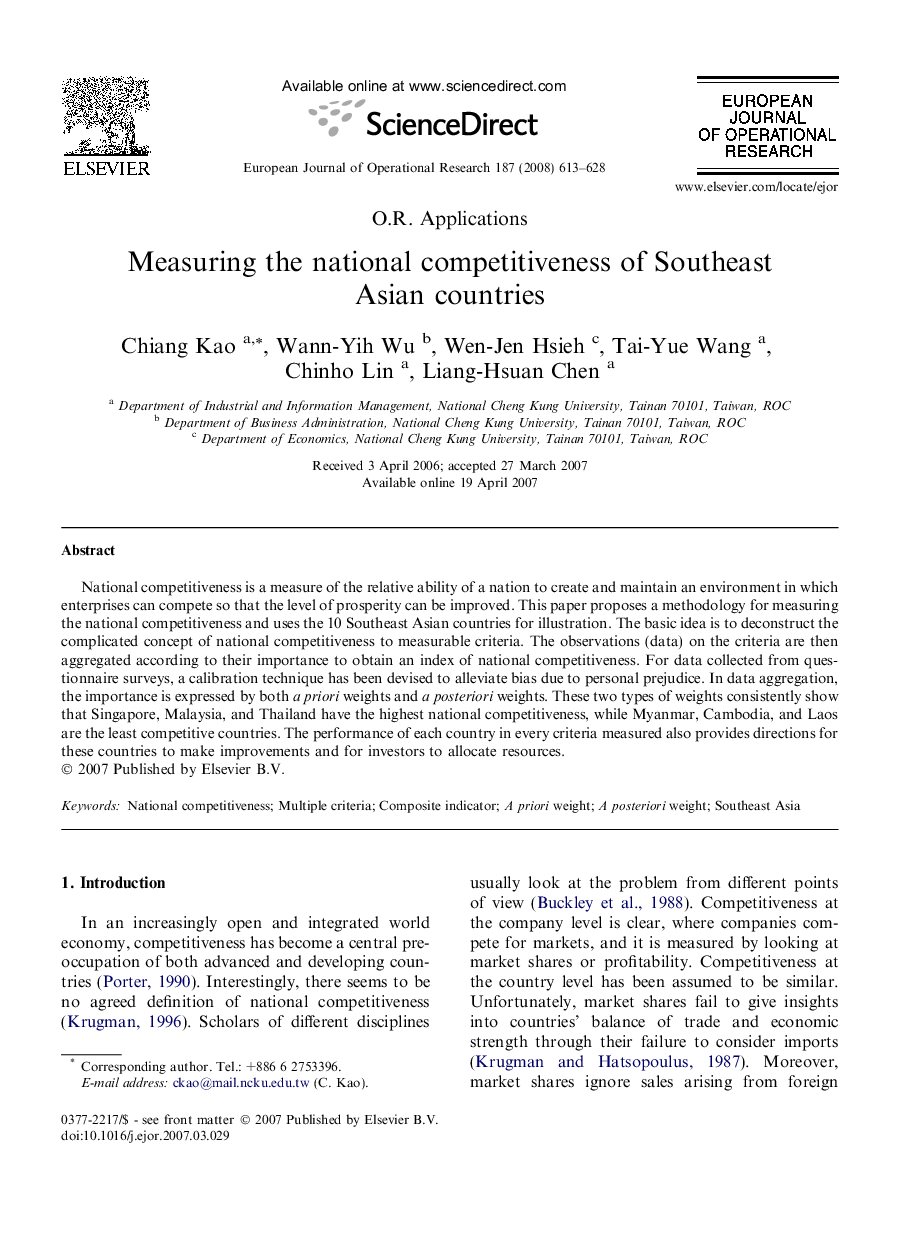| Article ID | Journal | Published Year | Pages | File Type |
|---|---|---|---|---|
| 481487 | European Journal of Operational Research | 2008 | 16 Pages |
National competitiveness is a measure of the relative ability of a nation to create and maintain an environment in which enterprises can compete so that the level of prosperity can be improved. This paper proposes a methodology for measuring the national competitiveness and uses the 10 Southeast Asian countries for illustration. The basic idea is to deconstruct the complicated concept of national competitiveness to measurable criteria. The observations (data) on the criteria are then aggregated according to their importance to obtain an index of national competitiveness. For data collected from questionnaire surveys, a calibration technique has been devised to alleviate bias due to personal prejudice. In data aggregation, the importance is expressed by both a priori weights and a posteriori weights. These two types of weights consistently show that Singapore, Malaysia, and Thailand have the highest national competitiveness, while Myanmar, Cambodia, and Laos are the least competitive countries. The performance of each country in every criteria measured also provides directions for these countries to make improvements and for investors to allocate resources.
